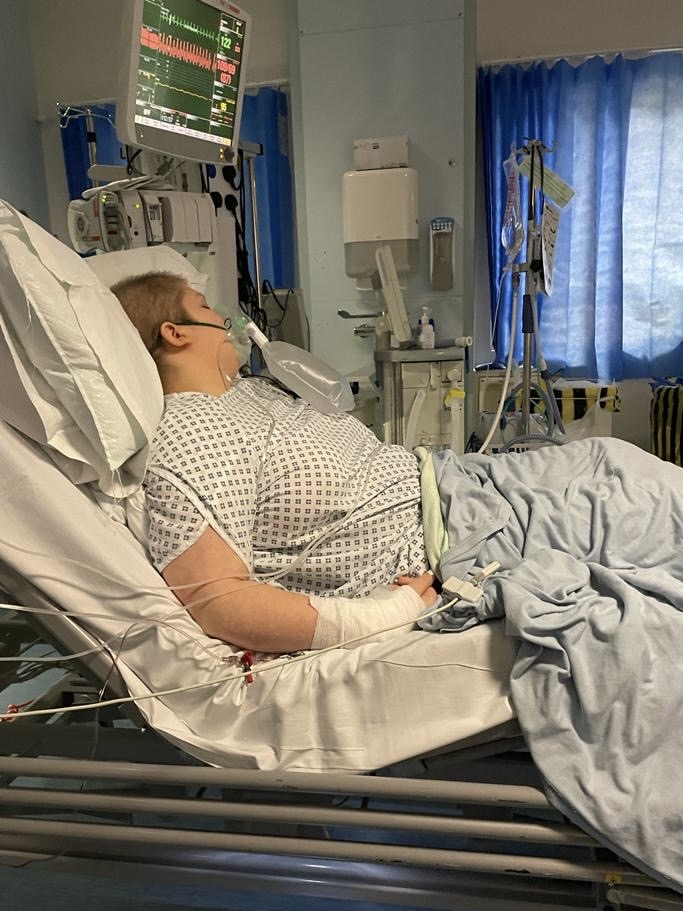Your cancer diagnosis
It’s not easy talking to a doctor, having tests, and getting a cancer diagnosis. Find out more about the cancer diagnosis process and the information available.
You are viewing: Diagnosis booklet
-
Cancer is quite rare in young people, but this doesn’t mean it doesn’t happen
-
You might have a number of different tests before you’re diagnosed with cancer
-
You can always ask your doctor or nurse if you have any questions about what’s happening
Your diagnosis booklet
Our guide ‘Your Diagnosis’ was created in partnership with Young Lives vs Cancer. We created this booklet to support all young people aged 13-24 facing cancer.
We worked closely with young people who have experiences of cancer, as well as healthcare professionals who work with teenagers and young adults with a cancer diagnosis, to create this information. It’s been created with young people, for young people.
It includes practical information about what to expect when you’ve just found out you’ve got cancer and it also has lots of tips and quotes from other young people who have had cancer. It doesn’t by any means cover everything you need to know. We’ve added lots more information on different topics about cancer at the bottom of this page and you can find out what all the different terms and phrases mean in our glossary.
Download YOUR Diagnosis booklet
If you would like to order a printed copy of the guide please email us on [email protected].
How is cancer diagnosed?
You might need to have several different tests before you’re diagnosed with cancer, and you might have to wait a little while for the results too. It’s not easy and you might be worried about what the results are going to say, but it’s important you get the right diagnosis.
It’s completely natural to feel nervous while you’re waiting for your results, remember you can always speak to your doctor or nurse and make sure you ask them any questions you might have about what’s going to happen.
It’s really important that you’re listened to, so if you don’t think you’re being taken seriously you can speak to someone. If you don’t feel comfortable having difficult conversations by yourself you could ask your parent or carer to come with you, or if you’re over 18 you could ask a friend or partner to support you with these conversations.
Waiting for a cancer diagnosis
It’s very normal to feel nervous if you’re waiting to hear back about tests you’ve had. Lots of people might feel a bit uncomfortable talking about their bodies but remember that doctors and nurses do this everyday and should be happy to answer any questions you have.
If you’re worried it can help to:
-
Write down what you want to ask beforehand
-
Make a note of your symptoms and when you started to feel unwell and take it with you to your appointment
-
Share as much information as possible – sometimes things might not seem worth mentioning but small details can make a difference
-
Take a parent/carer, friend or other family member with you
-
Be open and honest – remember that doctors talk to people about all kinds of problems all day, every day
-
Ask your doctor to repeat anything you don’t understand and make a note of what they say
-
Make sure you know what will happen next before you leave
Knowing the signs and symptoms of cancer
Cancer is quite rare in young people, but this doesn’t mean it doesn’t happen. It might mean that it takes a little longer for people to pick up on the signs and symptoms. This is why it’s good for you to know your body and to be able to recognise when something has changed or doesn’t feel right.
It’s good to keep a note of these things so you can share them with your GP and any other medical professionals you might see.
It’s likely that if you go to the doctor they will listen closely and ask some questions, referring you to a cancer expert if they think it’s necessary. If they don’t refer you on and your symptoms don’t go away you can always go back and ask them to take another look. If you’re not comfortable asking to be seen again you could ask a family member or friend to help you out.
Don’t forget you can use the links below to find out more about lots of different things to do with cancer diagnosis and treatment.

